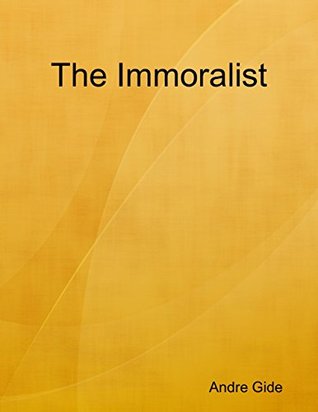More on this book
Community
Kindle Notes & Highlights
I am neither sad nor cheerful; the air here fills one with a kind of vague excitement and induces a state as far removed from cheerfulness as it is from sorrow; perhaps it is happiness.
To know how to free oneself is nothing; the arduous thing is to know what to do with one's freedom.
more simply than if I were talking to myself.
I thought I was giving her the whole of myself, without having any knowledge of what that self was.
And the habits of economy I had acquired with my father were so great that I felt almost uncomfortable when I learned that we had a great deal more.
Up till then, every occupation, while increasing my fatigue, had distracted me from feeling it.
Existing is occupation enough.
What was the reason of my fear, my horror now? Alas! it was because I had begun to love life.
I had forgotten I was alone, and sat on, expecting nothing, waiting for no one, forgetting the time. Up till that day, so it seemed to me, I had felt so little and thought so much that now I was astonished to find my sensations had become as strong as my thoughts.
I felt myself burning with a kind of happy fever— the fever of life itself.
There is nothing more tragic for a man who has been expecting to die than a long convalescence.
And suddenly, on the day when I first stripped myself on the rock, my beard made me feel uncomfortable; it was like a last piece of clothing I could not get rid of;
she already loved me too much to see me as I was;
happiness wears out in the effort made to recapture it; that nothing is more fatal to happiness than the remembrance of happiness.
I found very little more pleasure and no more emotion in talking to them than in consulting a good dictionary.
most of them, I thought, did not really live— contented themselves with appearing to live, and were on the verge of considering life merely as a vexatious hindrance to writing,
'The greater their likeness to each other, the more unlike they are to me."
"One must allow other people to be right," he used to say when he was insulted, "it consoles them for not being anything else."
"Forgive me," he said, "but I hardly ever drink such things." "Are you afraid of getting drunk?" "Oh!" replied he, "on the contrary! But I consider sobriety a more powerful intoxication— in which I keep my lucidity." "And you pour the drink out for others?" He smiled. "I cannot," said he, "expect everyone to have my virtues. It's good enough to meet with my vices. ..."
The part in each of us that we feel is different from other people is just the part that is rare, the part that makes our special value— and that is the very thing people try to suppress. They go on imitating.
I hate people of principle." "Yes," answered Menalque, laughing, "there is nothing more detestable in the world. It is impossible to expect any sort of sincerity from them; for they never do anything but what their principles have decreed they should do; or if they do, they think they have done wrong.
"One imagines one possesses and in reality one is possessed,"
"But you live your wisdom," said I; "why do you not write your memoirs? Or simply," I added, seeing him smile, "recollections of your travels?" "Because I do not want to recollect," he replied. "I should be afraid of preventing the future and of allowing the past to encroach on me. It is out of the utter forgetfulness of yesterday that I create every new hour's freshness. It is never enough for me to have been happy. I do not believe in dead things and cannot distinguish between being no more and never having been."
uneasiness was the very food of love,
I had not cured her unhappiness, but how eagerly she clutched at hope! . . .
Illness had refined— etherealized her features.
in proportion as I respected myself less, I revered her more?
I think too that there are strong joys for the strong and weak joys for the weak who would be hurt by strong joys.
What she called happiness, I called rest, and I was unwilling, unable to rest.
Memory is an accursed invention.
This objectless liberty is a burden to me.


